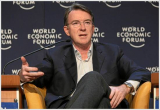
NATO has announced a historic achievement, with a record 18 member countries slated to fulfill the defense alliance's goal of allocating 2% of their economic output to defense
spending this year.
Secretary General Jens Stoltenberg revealed this significant increase from the previous year, when only 11 out of NATO's 31 members met the threshold.
Germany's anticipated adherence to the target marks a pivotal moment, representing the country's first attainment in decades.
NATO's announcement follows remarks made by former US President Donald Trump, who suggested he would support Russian aggression against NATO members failing to meet defense spending obligations.
The commitment to allocate at least 2% of GDP on defense was solidified by NATO leaders in 2014, spurred by Russia's annexation of Crimea from Ukraine and subsequent hostilities in eastern Ukraine. At that time, defense spending hovered below 1.5% of GDP.
While Ukraine is not a NATO member, the organization is committed to assisting its neighboring countries in defense efforts against external threats.
German Chancellor Olaf Scholz affirmed on social media Germany's pledge to maintain the highest defense budget in Europe, ensuring the 2% target for years to come to uphold safety and reliability.
Estonia has also pledged significant defense spending, surpassing 3% of its economic output this year and allocating 0.25% of GDP for military assistance to Ukraine. Estonian intelligence chief Kaupo Rosin cautioned of potential Soviet-style military build-up in the coming years.
Jens Stoltenberg highlighted the substantial progress made by NATO members, with European nations and Canada collectively increasing defense spending by $600 billion since the 2% target was established a decade ago. However, he emphasized that some allies still have room for improvement in meeting the target.
Stoltenberg rebuked Trump's recent comments suggesting a lack of commitment among NATO allies, affirming NATO's unwavering dedication to collective defense. He underscored NATO's readiness to protect all members and emphasized the organization's robust collective defense measures in response to Russian aggression.
The NATO chief reiterated the importance of NATO's solidarity and commitment to deterrence, particularly in light of Russia's aggression in Ukraine. He emphasized the necessity of conveying NATO's readiness and resolve to protect all allies, leaving no room for ambiguity or misinterpretation by Moscow.
As Western defense spending surged in response to Russia's invasion of Ukraine in 2022, 11 countries met the 2% target in 2023. Seven more countries are expected to reach the threshold in 2024, signaling a significant uptick in defense expenditure across the alliance. Photo by Håkan Dahlström from Malmö, Sweden, Wikimedia commons.








































